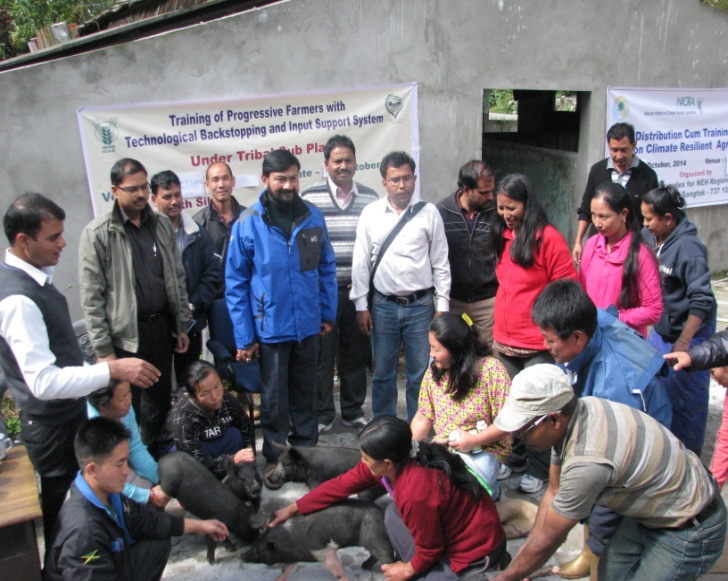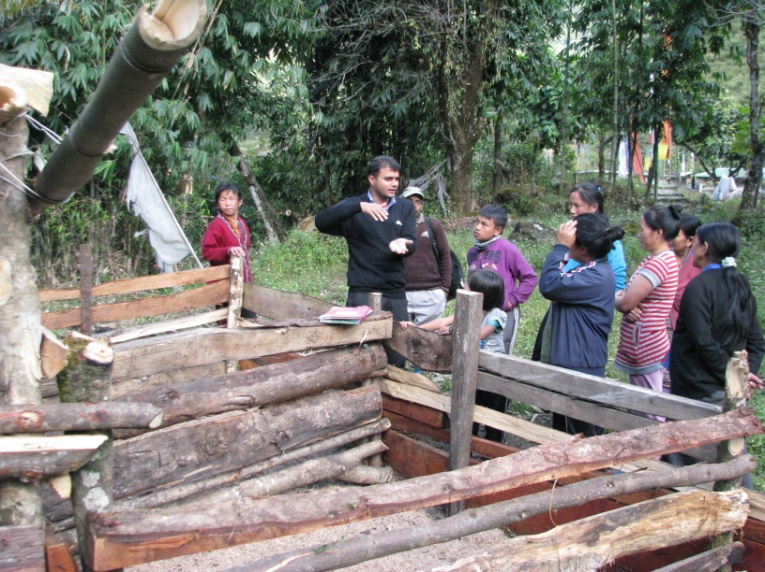Hands on Training to Tribal Women Farmers on Pig Farming under Deep Litter Cum Piglets Distribution held at North Sikkim
A hand on training on Pig farming under deep litter cum piglet’s distribution to tribal farms women was conducted at Chungthang almost height of 1565m amsl in North District of Sikkim on 30th October 2014 and a total eighteen No. of piglets has been distributed among one S.H.G and three individual beneficiaries. In the beginning of training programme, Joint Director, ICAR Sikkim Centre, Dr. R. K. Avasthe affectionately welcomed the tribal farm women cum participant and informed about pig farming under deep litter housing system is a component project of Tribal Sub Plan. Stressing the need to go with integrated farming system which is more suitable and sustainable for mountainous terrain. Further he showed the opportunities available in the region and need to harnesses them as availability of plenty of kitchen waste coming from construction workers, tourist hotels along with army kitchen waste as area have heavy deployment of army because of its strategic location.
Dr. Brijesh Kumar, Scientist, Animal Reproduction and principal investigator of the project “Pig Farming under Deep Litter Housing System for Sustainable Livelihood and Nutritional Security of Tribal Farmers of Sikkim” have made a prior visit and given proper training about construction of low cost pig sty and took the base line survey of the farmers. During the training he explained the importance of pig farming under deep litter housing system and said that uncovered area must be filled with saw dust or any dry soft leaves that will provide good cushion to animal, reduces labor involvement and some extent off smell coming out of pig farm apart from farmers will get good composting material which is ready to use in field condition which further helped in neutralization of acid soil and enhancing soil fertility in turns increase crop production.Further he emphasized about importance of periodic deworming and vaccination especially against swine fever and given tips for incorporation of locally available tuber crops in pig diet along with other improved husbandry practices. And also showed the potential of integration of pig farming with fish culture and horticulture for efficient recycling of resources and good returns.
Dr. H. Kalita (Agril. Entomology) Dr. A. Yadav ( Horticulture), Dr. R. Singh (Agronomy), Dr R.Gopi (Plant Pathology) ad Dr. S.K. Das (Soil Science) also shared their views in respective subject. Mr Passang T. Bhutia, Boniface Lepcha and Karma Bhutia facilitated the training cum piglet’s distribution.

